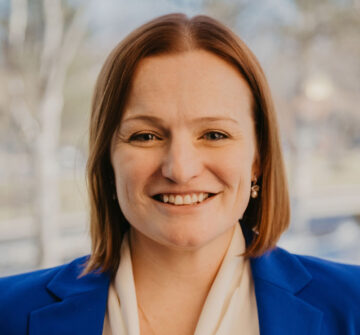11 projects receiving funding to support innovation and cross-sector collaboration between non-profits and industry, as teams tackle pressing life science challenges
Waltham— Today, the Massachusetts Life Sciences Center (MLSC) announced $8.3 million in capital funding awarded through its two newest capital programs focused on “novel therapeutics delivery” and women’s health. In total, 11 projects are receiving funding to support efforts in innovation and cross-sector collaboration between non-profits and industry, as teams tackle pressing life science challenges. Awardees comprise of not-for-profit organizations collaborating with at least one for-profit Massachusetts life science company. The MLSC recently announced $15 million in additional capital funding through its Open Capital program, targeting research infrastructure, and Bits to Bytes program, driving innovation through data science.
“These investments represent the vital role the Life Sciences Center plays in catalyzing new partnerships and deepening cross-sector collaboration with a goal of taking on pressing life sciences challenges,” said Massachusetts Housing & Economic Development Secretary Mike Kennealy, who serves as Co-Chair of the MLSC Board of Directors. “Massachusetts is uniquely positioned to provide support of new ideas and innovative strategies to improve health conditions, diagnoses, and treatments, and better understanding their impact across various health care populations.”
“The Baker-Polito Administration is proud to support these novel efforts encouraging collaboration and innovation to advance human health and improving patient outcomes,” said Secretary for Administration and Finance Michael J. Heffernan, who serves as Co-Chair of the MLSC Board of Directors. “These grants further our important, shared mission to incentivize transformative projects developing solutions in areas of need, while strengthening the thriving life sciences industry here in Massachusetts.”
“Now more than ever, the Life Sciences Center must serve as a catalyst to capitalize and incentivize translational projects supporting solutions for challenges facing the life sciences sector and our broader health care system,” said Interim MLSC President & CEO Damon Cox. “While these efforts will help ensure Massachusetts remains at the cutting-edge of life sciences advances and capabilities, most importantly they will aid in driving forward the potential of delivering higher outcomes and more accessible therapies to patients around the world.”
The Novel Therapeutics Delivery program fosters the development of technologies for the delivery of new or existing therapies by working at the intersection of engineering, biology, chemistry, and medicine. Innovative therapies are dependent on advancements in drug delivery. Increased drug complexity, the rise of biopharmaceuticals, novel therapeutic technologies, bioavailability challenges, and the demand for the demonstration of strong drug performance are all driving unprecedented technology development. However, the availability of such therapies is not accelerating at the rate with which technology is advancing. Existing therapies can also benefit from improved delivery methods and devices, increasing patient compliance and improving overall health. Overall, this program is supporting six projects, totaling more than $4.2 million in capital funding, with seven industry partners.
This includes Boston University researchers collaborating with Waters Corporation to develop new analysis techniques and software to enable generation of more effective Influenza A virus vaccines. As the flu virus circulates in humans, it accumulates new ways to evade the human immune response through the addition of carbohydrates. Researchers believe this evasion tactic, in combination with ineffective means to measure glycosylation with current technology, is a driving factor in influenza A vaccine limitations. The project team, aided by $749,349 in MLSC capital funding, will harness a breakthrough in ion mobility-mass spectrometry technology to develop more effective methods and techniques for measuring protein glycosylation. In the process, researchers will not only solve a critical problem for influenza vaccine development, but also establish analytical and software solutions that will be broadly applicable for vaccine development and the biomedical field in general.
“We are pleased to be recognized for this vital work and thank the Massachusetts Life Sciences Center for their generous support. This funding will advance critical research that could ultimately benefit millions of people with a more effective influenza vaccine,” said Karen Antman, MD, dean, Boston University School of Medicine and provost, Boston University Medical Campus.
The Women’s Health program supports collaborative projects to improve the discovery, technical innovation, and/or analysis of datasets to answer pressing life science questions around women’s health. Massachusetts recognizes there has been a lack of development in novel solutions to treat conditions that solely or disproportionately affect women or have a different presentation between genders. This affects not only patients, but also employers and the health care system. The consequences are profound, with women more likely to have adverse drug reactions compared to men, and the lack of effective therapies results in reduced quality of life. This capital effort is providing more than $4.1 million in funding to five cross-sector project teams.
Brigham and Women’s Hospital, in conjunction with Beth Israel Deaconess Medical Center, is serving as the lead organization on one such project, which aims to establish a first-of-its kind “Lactation Lab.” The lab will have both the clinical and laboratory infrastructure for investigating lactation outcomes and breastmilk composition. According to researchers, 60 percent of U.S. women struggle to breastfeed and are not able to breastfeed for the desired length of time. Research also demonstrates that longer breastfeeding duration can decrease post-partum weight retention and metabolic issues, while also decreasing the possibility post-partum depression and rates of breast and ovarian cancer. Utilizing infrastructure, supported by $1,126,306 in MLSC capital funding, and expertise from their industry partner, Metabolon, the project team will conduct a thorough investigation of the maternal predictors of lactation outcomes and breastmilk composition. In the short-term, this inquiry will generate fundamental knowledge required for the discovery of interventions to improve maternal and infant health outcomes. In the long-term, the development of the Lactation Lab will provide a model for discovery in the field of lactation science, bringing much-needed scientific rigor to investigations during this critical period that influences the lifelong health of two generations.
“We are honored to receive the Massachusetts Life Science Center Women’s Health Capital Grant,” said Sarbattama Sen, MD, Attending Neonatologist, Brigham and Women’s Hospital and Assistant Professor of Pediatrics, Harvard Medical School. “This funding will allow for the establishment of a state-of-the art center to study lactation science. The Lactation Lab will encompass both a basic science laboratory, with protocols optimized for breastmilk assays, and a clinical research space designed for the needs of breastfeeding women and their infants.
“Together, these facilities will foster multi-disciplinary translational research to optimize breastfeeding outcomes and improve health outcomes for women and infants in the commonwealth and beyond,” said Camilia Martin, MD, Associate Director of the Neonatal Intensive Care Unit at Beth Israel Deaconess Medical Center. “We are also thrilled to be able to provide the most detailed characterization of the maternal and infant metabolomic landscape in the peri- and post-partum period.”
In recent months, the Center has been proud to be part of the Commonwealth’s ongoing effort to respond to the COVID-19 outbreak, including contributing funding and resources to the Manufacturing Emergency Response Team (M-ERT) and the Massachusetts Consortium on Pathogen Readiness. These recent contributions are in addition to our continued administration of various programs and other initiatives to support the life sciences sector. The MLSC’s portfolio of programs has strategically deployed more than $700 million in Massachusetts, through a combination of grants, loans, capital infrastructure investments, tax incentives, and workforce programs. These investments have created thousands of jobs, and propelled the development of new therapies, devices, and scientific advancements that are improving patient health and well-being in Massachusetts and beyond.
This past Monday, the MLSC launched another round of its Novel Therapeutics Delivery program with applications due December 17, 2020. This in addition to a new round of Bits to Bytes announced in early August, with applications for this returning program due December 10, 2020. Other funding programs will launch over the next few weeks.
Novel Therapeutics Delivery Program Awardees:
Awardee (PI, Institution): James Whitney, Beth Israel Deaconess Medical Center
Industry Partner(s): Tidal Therapeutics
Project Title: Preclinical optimization of therapeutic mRNA targeting and delivery
Awardee (PI, Institution): Joseph Zaia, Trustees of Boston University
Industry Partner(s): Waters Corporation
Project Title: Developing new glycosylation analysis techniques and software to enable generation of more effective Influenza A virus vaccines
Awardee (PI, Institution): James Gorman, President and Fellows of Harvard College
Industry Partner(s): FairJourney Biologics, Lundbeck, Eisai
Project Title: New targets and novel antibody shuttles for brain delivery of therapeutics
Awardee (PI, Institution): Quan Lu, Harvard T.H. Chan School of Public Health; Stephen Haggarty, Massachusetts General Hospital
Industry Partner(s): Vesigen Therapeutics, Inc.
Project Title: Advancing CNS Therapeutic Delivery via ARMMs
Awardee (PI, Institution): Bradley Pentelute, MIT
Industry Partner(s): Rubius Therapeutics, Inc.
Project Title: Regioselective conjugation of peptides to the major histocompatibility complex I (MHC I)
Awardee (PI, Institution): J Matthew Dubach, Massachusetts General Hospital
Industry Partner(s): Fog Pharma
Project Title: High resolution pharmacokinetics: imaging drug delivery from administration to on-target activity (high-res PK DATA)
Women’s Health Program Awardees:
Awardee (PI, Institution): Sarbattama Sen, Brigham and Women’s Hospital; Camilia Martin, Beth Israel Deaconess Medical Center
Industry Partner(s): Metabolon
Project Title: The Lactation Lab: Improving the health of two generations by optimizing breastfeeding
Awardee (PI, Institution): Michael Busa, UMass Amherst
Industry Partner(s): Embr Labs
Project Title: Artificial Intelligence for Menopause Symptoms (AIMS)
Awardee (PI, Institution): Manos Gkikas, Hengyong Yu, UMass Lowell; Mary Rusckowski, UMass Medical School
Industry Partner(s): Bowing Medical Technologies
Project Title: Breast Cancer Detection Empowered by Contrast Agents, Spectral CT, and Machine Learning
Awardee (PI, Institution): Gopal Vijayaraghavan, UMass Medical
Industry Partner(s): Deep Health
Project Title: Improving Breast Cancer Diagnosis Using Artificial Intelligence in Mammography Screenings
Awardee (PI, Institution): Dr. Kristen Porter, Ph.D., Westfield State University
Industry Partner(s): Iomics Intelligent Analytics
Project Title: Predictive modeling to create “bioprofiles”: for use in personalized medicine in women’s health


